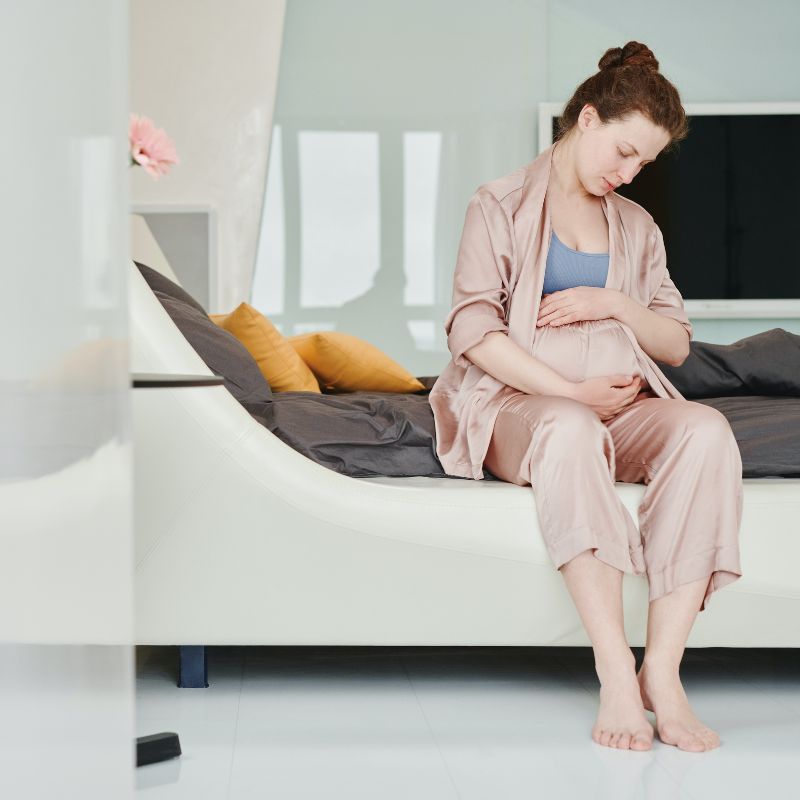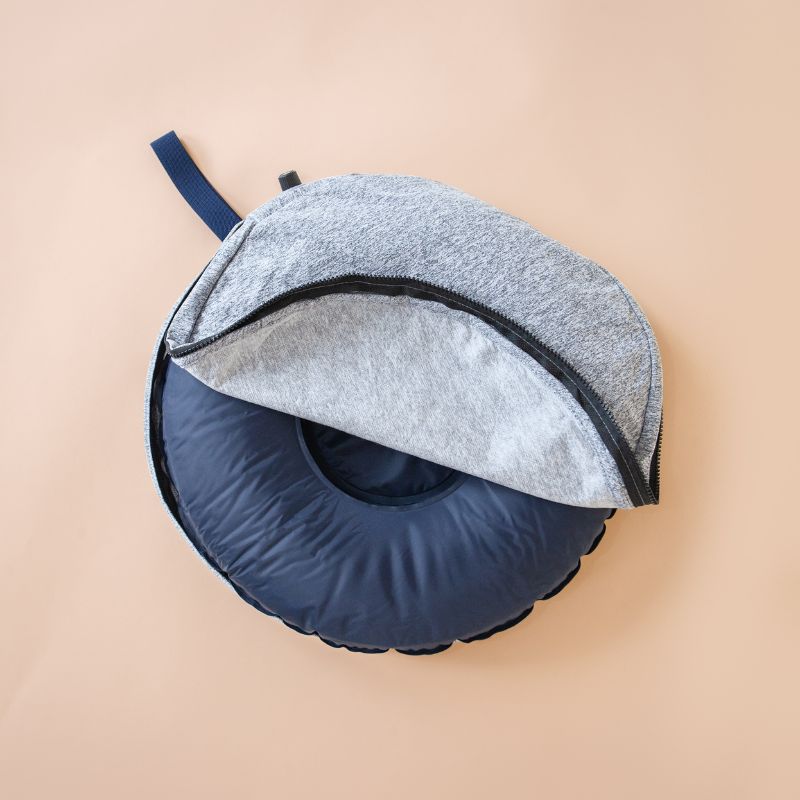Hemorrhoids during pregnancy

Hemorrhoids during pregnancy are not a new topic. Unfortunately, it is a subject that many people avoid talking about. It is more common than you probably think to suffer from this when you are pregnant, so if you are one of those who have it, you are definitely not alone. Many people are ashamed of having hemorrhoids and often associate it with the false notion that they arise due to poor hygiene. This is not true.
What is true, however, is that a total of three out of four women who have given birth have had rectal issues during pregnancy or in connection with childbirth (statistics from a survey commissioned by the international pharmaceutical company Sanofi).
To clear up this matter of hemorrhoids once and for all, we have put together a small FAQ list below!
Frequently Asked Questions About Hemorrhoids During Pregnancy
1. What are hemorrhoids?
Hemorrhoids are a common rectal issue that can cause both itching and pain. They are small varicose veins that form either around or inside the rectal opening. In the rectal opening, there are something called anal cushions, and when these swell and protrude, so they are visible and felt outside the anal opening, they are called internal hemorrhoids. External hemorrhoids form in the skin around the opening.
2. Why do you get hemorrhoids?
In the rectal opening and anus, there are blood vessels and connective tissue cushions. Hemorrhoids occur when these enlarge due to increased pressure. The cause of the pressure can vary, but during pregnancy, the uterus grows and puts pressure on the large blood vessels in the body. This makes it harder for blood to circulate, which in turn leads to increased pressure in the rectal blood vessels, making it easier for hemorrhoids to form.
3. Why are hemorrhoids more common during pregnancy?
As mentioned above, it is not uncommon to get hemorrhoids while pregnant because the growing uterus creates increased pressure on the rectal blood vessels. It is also common to become constipated during pregnancy, and a common cause of hemorrhoids is having to strain and push to empty the bowels.
4. How can you reduce the discomfort from hemorrhoids?
There are several over-the-counter medications that can be used if you know that you have hemorrhoids. Always consult with pharmacy staff or your midwife before using any medication if you are pregnant. If it is very painful to sit down, there are special cushions you can sit on, such as our very own sitting cushion.
5. Do hemorrhoids go away after childbirth?
Fortunately, the hemorrhoids that occur during pregnancy usually disappear after giving birth. It may take some time before they completely go away, but as soon as the pressure on the blood vessels decreases, they generally recede relatively quickly.
6. At what stage of pregnancy are issues most common?
There is no specific stage when the problem "starts." You can get hemorrhoids during pregnancy at the beginning, middle, or end of the pregnancy. However, the risk often increases the more the uterus grows or if you become constipated.
7. Is there anything you can do to reduce the risk of getting hemorrhoids?
To reduce the risk of getting hemorrhoids during pregnancy, drink plenty of water and eat fiber-rich food. This helps your digestive system and can prevent constipation, which can be one of the causes of hemorrhoids. Regular physical activity during pregnancy is also a way to reduce the risk of hemorrhoids.
8. How do you get rid of hemorrhoids?
Getting hemorrhoids during pregnancy is common, and unfortunately, there is no specific treatment to get rid of them. Keep the rectal area clean to avoid infections and gently wash with lukewarm water. Talk to your doctor, midwife, or pharmacy if you need pain relief or something to relieve itching. A tip is to try holding an ice pack against the area. It can feel soothing and reduce itching.
- Tags: Fakta Graviditet Ta hand om dig

